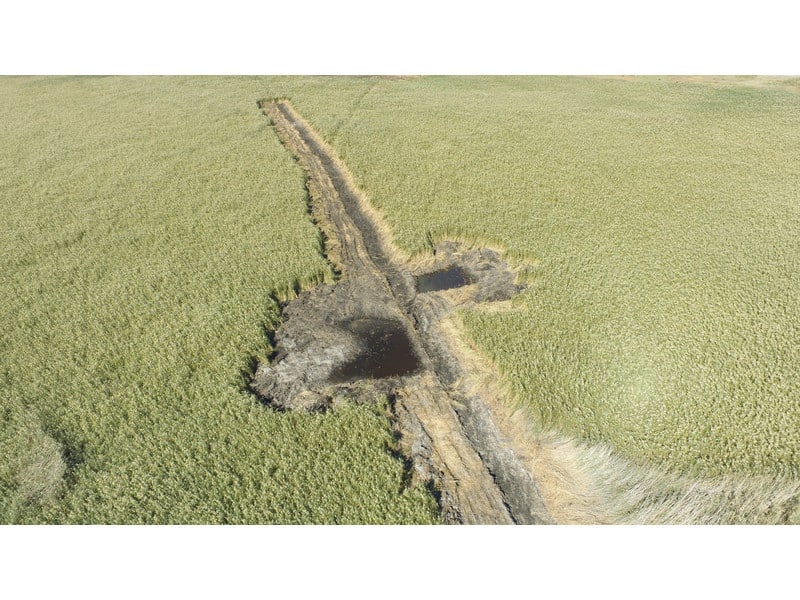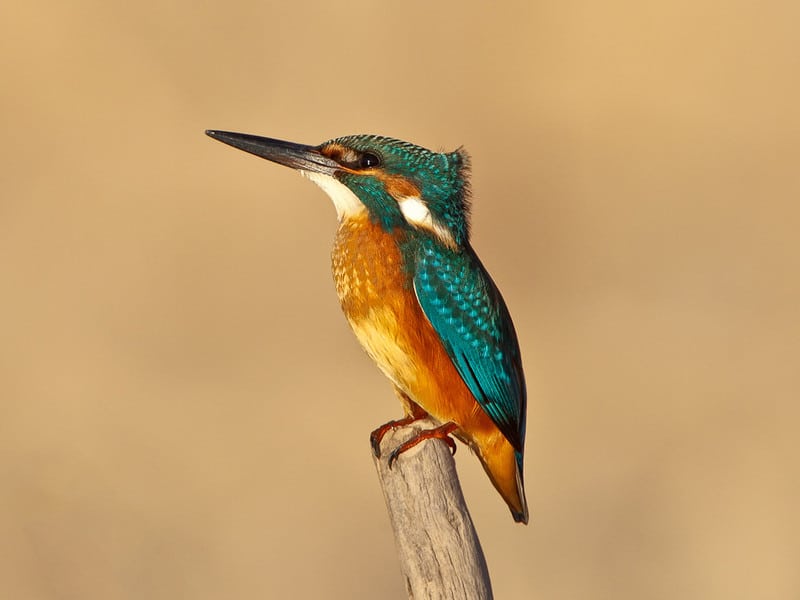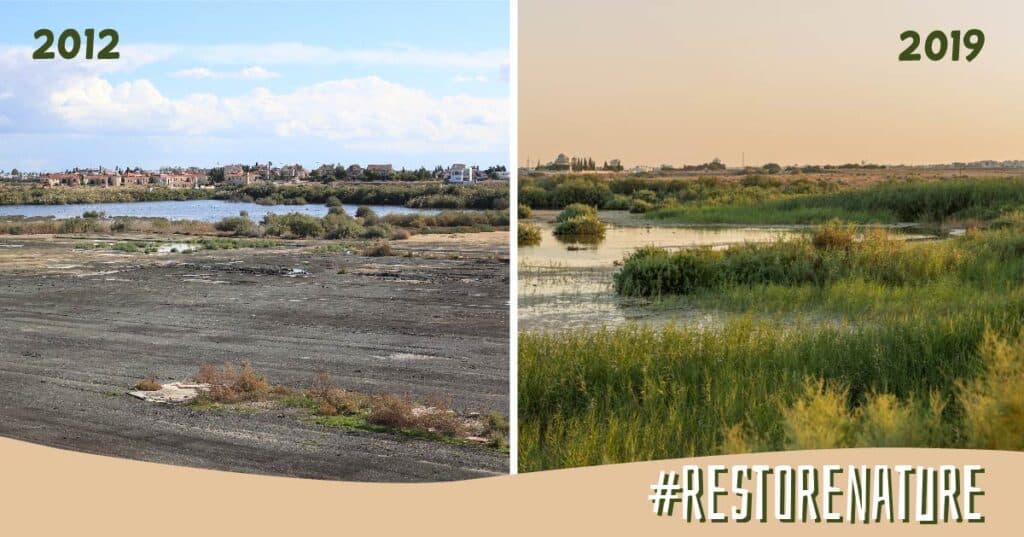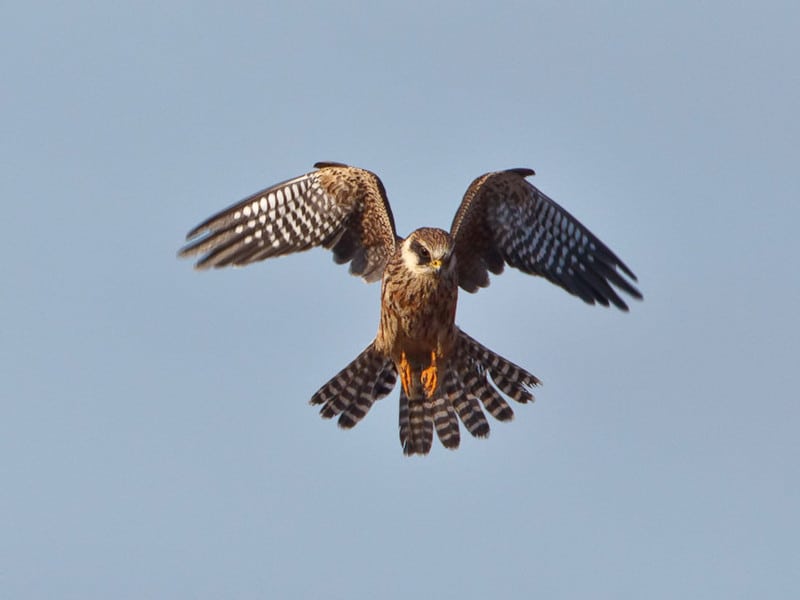Key vote looms on future of EU nature restoration
The vote on the future of nature restoration is one of the most important decisions the EU has ever been faced with, as nature and biodiversity is key to the functioning of society and the provision of food.
Governments across the EU are about to decide. A key vote on the subject is coming up on June 15 by the European parliament’s environment committee – the lead committee on the proposal. If the committee rejects it, it is not likely to be adopted, but if they do, it is a big step towards securing ecosystems for our future.
“This is a critical moment in this effort,” head of non-profit organisation BirdLife Cyprus Martin Hellicar told the Cyprus Mail.
It is an ambitious project, and a very necessary one.
“Europe’s nature is in alarming decline, with more than 80 per cent of habitats in poor condition. Restoring wetlands, rivers, forests, grasslands, marine ecosystems, and the species they host will help,” the European Commission warns.
“The European Commission’s proposal for a nature restoration law is the first continent-wide, comprehensive law of its kind. It is a key element of the EU biodiversity strategy, which calls for binding targets to restore degraded ecosystems, in particular those with the most potential to capture and store carbon and to prevent and reduce the impact of natural disasters.”
Hellicar explained why he thinks the new law is so important.
“This is a fantastic opportunity and has the potential to really turn around our relationship with nature. It is not easy, but it has to happen. The proposal not only includes nature reserves, but also farmland and forested areas,” he said.
“By 2030, in just seven years, the EU wants to have nature restoration measures in place in at least 20 per cent of the EU land and sea area. By this time, pesticide use needs to be cut in half.”
But the inclusion of farmland other than areas located in nature reserves is a reason the regulation is controversial. Farmers in Cyprus are totally against it.
They see it as a real threat to food production, which is very short-sighted, the head of BirdLife Cyprus said, since in the long-run, climate change and the lack of diversity of the ecosystem are the main factors which harm agriculture. Farming overused farmland and using pesticides are not viable options.
“There is a huge problem with the use of rat poison. Farmers believe they cannot do without it. If they are to change their mind, they have to have support and they have to be provided with other options. For example, an alternative solution is the placement of nest boxes for barn owls in rural areas. Barn owls are hunters with an appetite for mice and rats.”
Much lobbying against the plan is taking place in other European countries. It has already been rebuffed by the European parliament’s agriculture and fisheries committees.
Forestry management is often concerned with the sale of wood rather than fostering diversity, while the fishing industry is about trawling the seas and is not concerned with giving nature a chance to recover.
The importance of marine life such as sea grass beds is often not considered at all, which, in the words by Hellicar “have an incredible potential for mopping up carbon dioxide”.
History will judge the European MEPs who oppose the law, he believes.
“This is a huge chance to actually take concrete actions and not just talk.”
BirdLife Cyprus has long been involved in restoration projects, two in particular: one at Oroklini lake and the other at Akrotiri marsh.
Both are staggering proof of the importance of restoring a natural habitat and how neglected areas can once again recover, giving birds and other wildlife space to thrive as well as the world the opportunity to cherish them.
Though enjoying legal protection, the reality on the ground is that both areas urgently need conservation action allied with management for wise use.
The Akrotiri project
A kingfisher at the Akrotiri wetland (Albert Stoeker)The project ‘Akrotiri marsh restoration: a flagship wetland in the bases’ aimed at restoring Akrotiri marsh to a mosaic of habitats, similar to the state it was in some decades ago. Akrotiri peninsula is situated within the British bases in the south of the island.
Here, the oldest signs of human presence on the island are found and while man and nature coexisted on the peninsula for millennia, Akrotiri is now in unprecedented danger from human actions, decisions and aspirations.
Besides its importance for birds, Akrotiri marsh is also important regarding its flora, as the site hosts some rare and threatened species.
A combination of landscaping works, water management actions and management of vegetation using grazing animals aimed at habitat modification took place in order to increase species diversity. Grazing is a key management action that will also contribute to longer-term reed management.
Oroklini lake
Wetlands are among the most fragile ecosystems, especially Mediterranean wetlands. Oroklini lake is the smallest Natura 2000 site in Cyprus, covering an area of about 50 hectares. The lake was facing a number of threats until an EU funded project implemented between 2012 and 2014 initiated collaborations for the restoration of this important wetland.
A ground-breaking project, co-funded by the LIFE programme of the European Union had the aim to address the main threats of the site.
The three-year project’s beneficiaries were the game and fauna service as lead beneficiary, BirdLife Cyprus as the coordinator, the department of the environment, the forestry department and the Voroklini community council.
It consisted of both conservation and awareness-raising actions that tackled the pressures threatening this important wetland. Conservation actions included fencing of the lake to prevent disturbance from motor vehicles and motorcycles that enter the lake during dry seasons, removal of invasive alien plant species, planting of native shrubs and trees, water management and restoration of the area where a flea market used to operate illegally.
The site was also promoted through public-awareness activities. These included the construction of a visitor information point with a hide for bird watching, and information material for schools and the wider public.
Join forces with BirdLife Cyprus and ask Environment Minister Petros Xenophonos and Cypriot MEPs to adopt a strong and urgent implementation of the law that can curb nature and climate crises.










Click here to change your cookie preferences